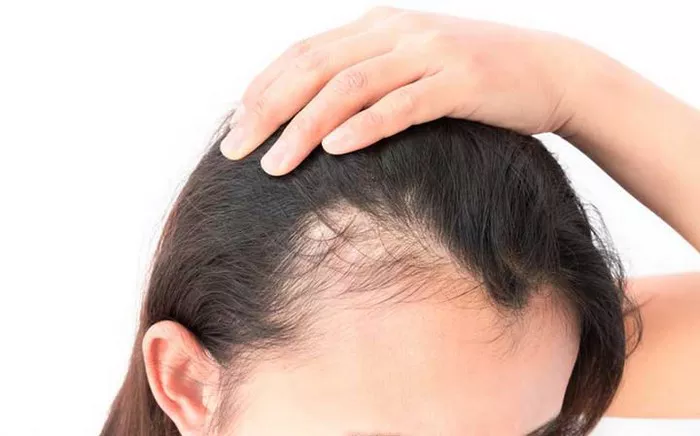Hair loss, a prevalent concern affecting individuals worldwide, is influenced by various factors, including genetics, hormonal imbalances, medical conditions, and lifestyle choices. Among these factors, diet plays a pivotal role in maintaining overall health, including the health of hair follicles. While consuming a balanced diet rich in essential nutrients promotes healthy hair growth, certain foods can have adverse effects, contributing to hair thinning and loss. In this comprehensive article, we delve into the intricate relationship between diet and hair health, focusing on specific foods to avoid to mitigate the risk of hair loss and promote optimal hair growth.
Understanding the Nutritional Needs of Hair Follicles
Before exploring foods to avoid, it is crucial to comprehend the nutritional requirements of hair follicles for optimal growth and maintenance. Hair follicles rely on a steady supply of essential nutrients, including vitamins, minerals, proteins, and fats, to support their function and vitality. Key nutrients for hair health include:
- Vitamins: Vitamin A promotes sebum production, a natural conditioner for the scalp. Vitamin C aids in collagen production, crucial for hair structure. Vitamin D supports hair follicle cycling. Vitamin E acts as an antioxidant, protecting hair follicles from oxidative stress.
- B Vitamins: Biotin (B7) and niacin (B3) are essential for maintaining healthy hair follicles and promoting hair growth.
- Minerals: Zinc supports hair growth and repair, while iron ensures proper oxygenation of hair follicles. Selenium helps regulate thyroid function, which influences hair growth.
- Proteins: Keratin, a protein found in hair, requires adequate protein intake for its synthesis.
- Healthy Fats: Omega-3 fatty acids support scalp health and hair growth by reducing inflammation.
Deficiencies in these nutrients can weaken hair follicles, slow down hair growth, and increase the risk of hair loss. Therefore, a balanced diet comprising nutrient-dense foods is crucial for promoting optimal hair health.
Foods to Avoid for Hair Loss Prevention
While incorporating nutrient-rich foods into your diet is essential for supporting healthy hair growth, it is equally important to avoid or limit the intake of certain foods that can negatively impact hair health. Here are some foods to avoid or minimize consumption:
1. Processed Foods: Processed foods, including fast food, packaged snacks, and ready-to-eat meals, are often high in unhealthy fats, sugars, and refined carbohydrates. These ingredients can contribute to inflammation, insulin resistance, and hormonal imbalances, which may adversely affect hair follicles and lead to hair loss.
2. Sugary Foods and Beverages: High-sugar foods like candies, pastries, and sodas can cause blood sugar spikes, leading to increased insulin levels and inflammation. Chronic elevated insulin levels can disrupt hair growth cycles and contribute to hair thinning and loss over time.
3. Fried and Greasy Foods: Foods that are deep-fried or cooked in unhealthy oils high in trans fats can increase inflammation and oxidative stress in the body. This can interfere with nutrient absorption and negatively impact hair follicle health, potentially leading to hair loss.
4. Alcohol: Excessive alcohol consumption can dehydrate the body and inhibit the absorption of essential nutrients necessary for healthy hair growth. Moreover, alcohol can disrupt hormonal balance and increase cortisol levels, which may contribute to hair thinning and loss.
5. High-Mercury Fish: Certain types of fish, such as swordfish, king mackerel, and shark, may contain high levels of mercury, a toxic heavy metal. Mercury exposure can impair hair follicle function and contribute to hair loss. Opt for low-mercury fish options like salmon, trout, and sardines to minimize exposure.
6. Refined Grains and Sugary Cereals: Refined grains like white bread, white rice, and sugary breakfast cereals have been stripped of their fiber and nutrients during processing. Consuming these refined carbohydrates can lead to blood sugar spikes and increased insulin levels, potentially promoting hair loss.
7. Dairy Products: While dairy products are excellent sources of calcium and protein, some individuals may experience sensitivities or intolerances to dairy proteins like casein and whey. In susceptible individuals, dairy consumption can trigger inflammation and hormonal imbalances, contributing to hair thinning and loss.
8. High-Sodium Foods: Diets high in sodium can lead to water retention and bloating, which may affect blood circulation to the scalp and hair follicles. Poor scalp circulation can compromise hair growth and contribute to hair thinning over time.
9. Artificial Sweeteners and Additives: Artificial sweeteners and food additives found in processed foods and beverages may disrupt gut health and promote inflammation, which can negatively impact hair follicle function and contribute to hair loss.
Conclusion
In conclusion, maintaining a healthy diet is essential for promoting optimal hair health and preventing hair loss. By avoiding or limiting the consumption of processed foods, sugary snacks and beverages, fried and greasy foods, alcohol, high-mercury fish, refined grains, dairy products, high-sodium foods, and artificial additives, individuals can support the health and vitality of their hair follicles. Instead, focus on consuming a diverse range of nutrient-rich foods, including fruits, vegetables, lean proteins, whole grains, nuts, seeds, and healthy fats, to provide essential vitamins, minerals, and antioxidants necessary for healthy hair growth. Additionally, staying hydrated, managing stress levels, and maintaining a balanced lifestyle are integral components of a holistic approach to promoting hair health. For personalized dietary recommendations and guidance, consult with a healthcare professional or registered dietitian to address specific concerns related to hair loss and optimize overall well-being.


